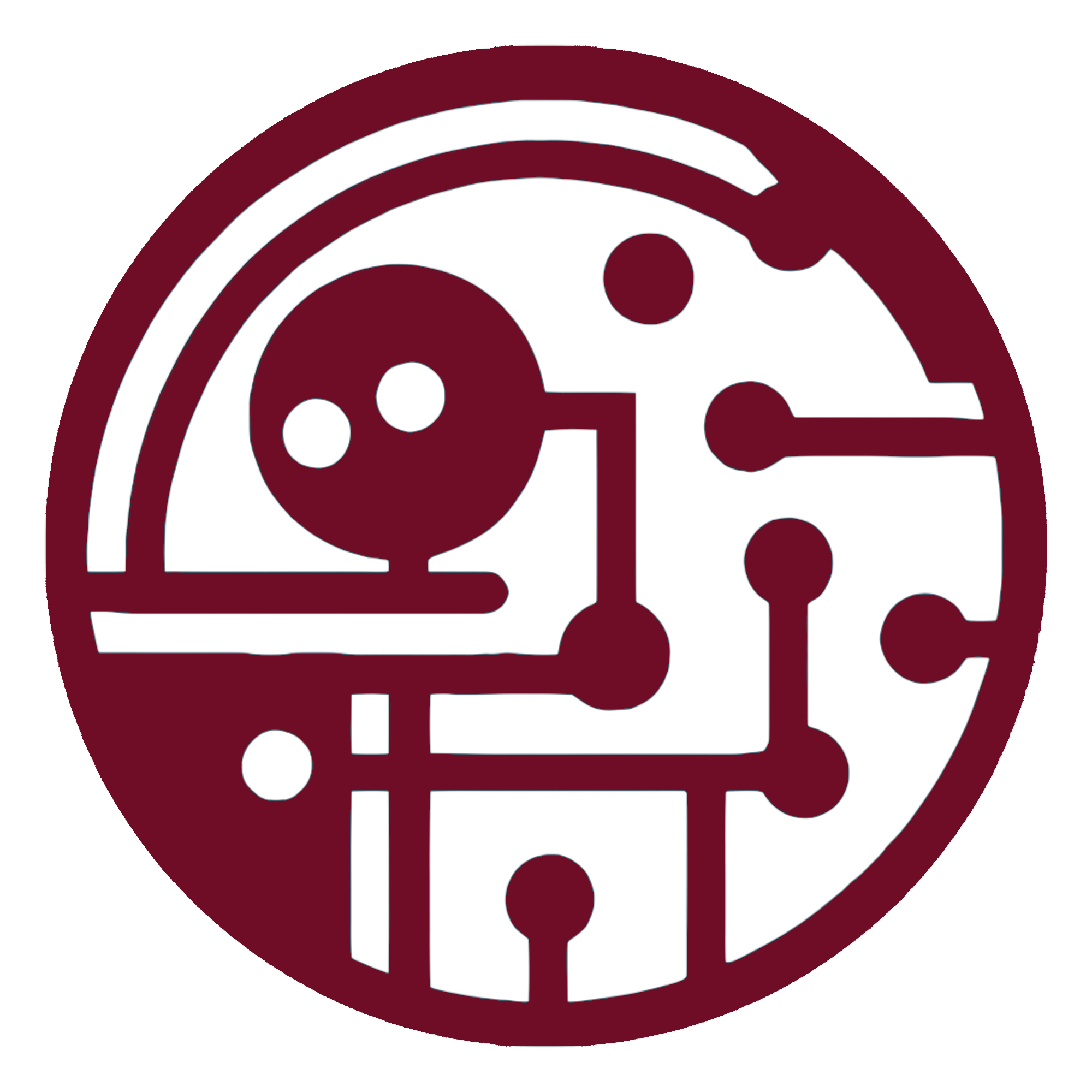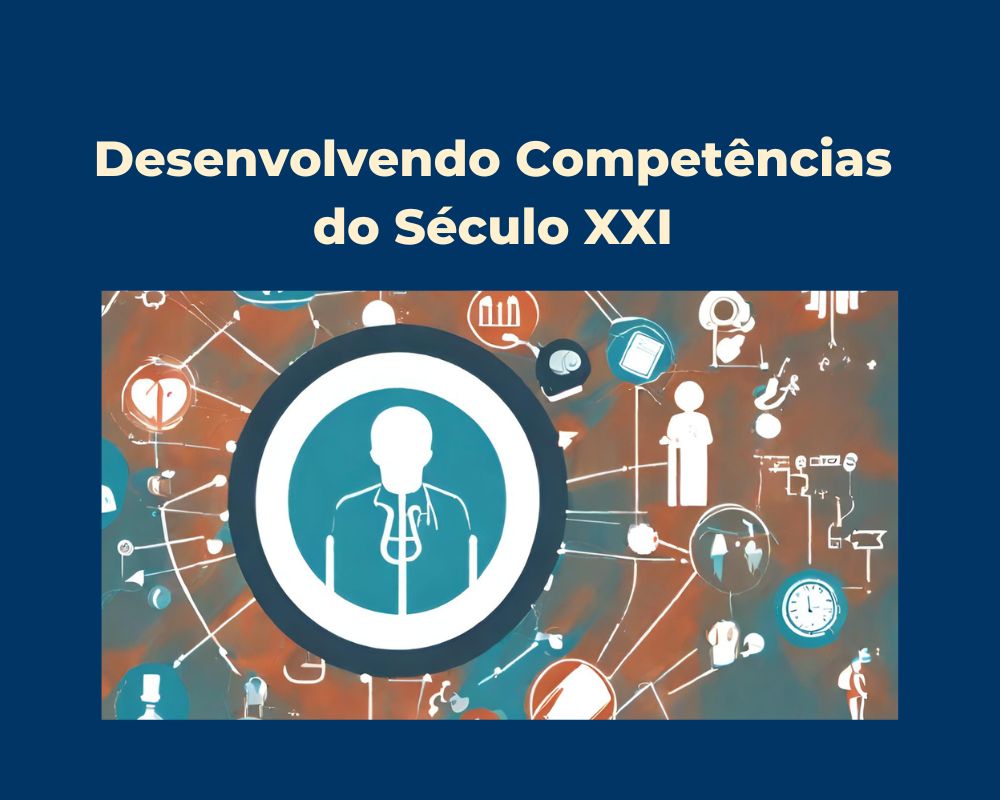Introduction
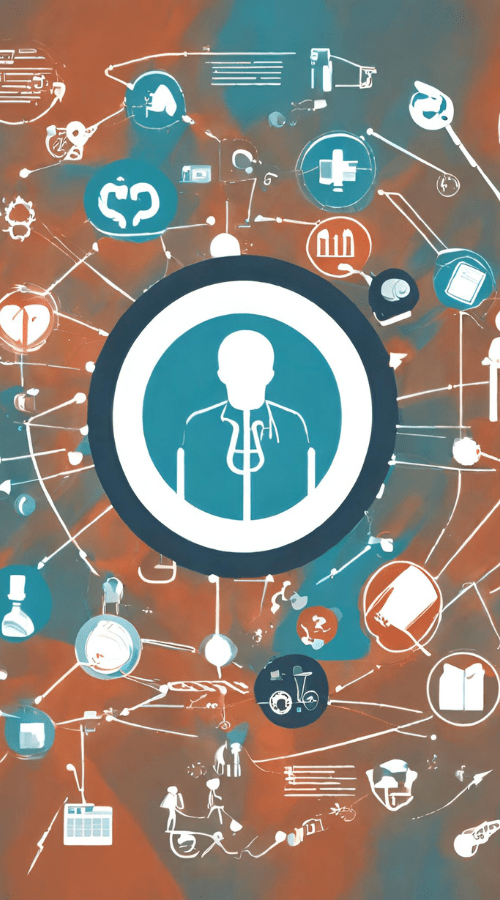
Developing 21st Century Skills. In the era of modern medicine, marked by rapid technological advances and increasing complexity in healthcare, the challenges faced by medical teachers transcend the simple transmission of knowledge. The need to stay up to date with the latest discoveries and technologies is just the tip of the iceberg. More than ever, it is crucial that medical educators prepare students to not only be competent professionals, but also adaptable and capable of navigating an ever-evolving healthcare environment.
This article aims to explore fundamental 21st century skills for medical teachers, highlighting the importance of developing skills that go beyond traditional medical knowledge. These skills include digital literacy, critical thinking, interprofessional collaboration, and effective communication. They are essential not only for clinical practice, but also for the innovative pedagogy necessary to train the health professionals of the future.
In an educational scenario increasingly focused on competency-based learning, medical teachers are called upon to play multiple roles. In addition to being knowledge transmitters, they must act as learning facilitators, mentors, pedagogical innovators, and ethical leaders. This multifaceted approach is vital to preparing medical students to face not only clinical challenges, but also the ethical, social and technological dilemmas inherent in contemporary medical practice.
Therefore, developing these crucial 21st century competencies for medical teachers is not just a matter of choice, but an imperative necessity to meet the current and future demands of medical education. This post seeks to offer insights, strategies, and reflections on how medical educators can enrich their teaching practices and, by extension, better equip their students for the dynamic world of healthcare that awaits them.
Digital Literacy
Developing Skills
21st century
At the forefront of 21st century skills for medical teachers, Digital Literacy plays a fundamental role. In an era defined by digital transformation, the ability to effectively utilize digital technologies in medical education is not just an advantage, but an imperative necessity. This competence transcends the basic use of digital tools, encompassing a deep understanding of how technology can enrich and transform the learning process in medicine.
The importance of digital literacy in medical education lies in its ability to open new paths for teaching and learning. With medicine evolving at a rapid pace, driven by constant technological innovations, medical education must keep pace. Teachers with high digital literacy are able to integrate innovative educational resources, making learning more interactive, accessible and aligned with modern clinical practices.
The practical application of digital literacy in medical education is vast and diverse. The implementation of online learning tools, for example, allows the creation of flexible and adaptable learning environments, where students can access high-quality educational content at any time and place. Likewise, virtual reality and digital simulations offer immersive, hands-on learning experiences, allowing students to practice clinical skills in a controlled, safe environment before applying them in real-world practice.
Therefore, developing and improving digital literacy among medical teachers is essential to adequately prepare future healthcare professionals. Faculty equipped with this 21st century competency are best positioned to provide a medical education that not only meets students' current needs, but also prepares them for the increasingly digitized and data-driven future of medical practice.
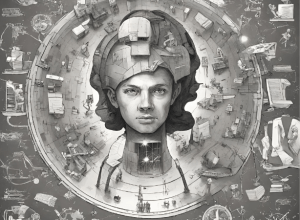
See also the article:
Reinventing Medical Teaching:
The Power of the Professional Skills-Based Resume
Critical Thinking and Problem Solving represent cornerstones of 21st century skills, especially for medical teachers. These skills transcend traditional medical knowledge, focusing on the ability to analyze complex situations, critically evaluate information, and formulate effective solutions. In a field as dynamic and challenging as medicine, the ability to think critically is not only beneficial; it's essential.
The importance of these skills in the context of medical education cannot be underestimated. Doctors and healthcare professionals face complex and multifaceted problems every day. Developing critical thinking and problem-solving skills in medical students prepares them to make informed, evidence-based decisions, an absolute necessity in modern clinical practice.
In the practical application of these skills in medical teaching, the development of learning scenarios based on real problems stands out as an effective methodology. This approach not only encourages students to actively engage with the learning material, but also places them at the center of the learning process, making them protagonists in the search for solutions. By facing challenges modeled after real clinical situations, students learn to apply critical thinking and problem-solving skills in practical and meaningful ways.
Therefore, fostering critical thinking and problem solving among medical teachers and students is crucial for the development of competent professionals prepared for the challenges of medicine. By integrating these competencies into the medical curriculum, educators are not only enhancing medical education but also contributing to the evolution of medical practice, empowering future doctors to be effective problem solvers and astute critical thinkers.
Interprofessional Collaboration emerges as one of the most valued skills of the 21st century for medical teachers. The complexity of modern healthcare requires a team approach, where different medical specialties and healthcare professions work together to provide the best possible patient care. This competence goes beyond simple teamwork, emphasizing the importance of integration and synergy between different areas of medical and health knowledge.
The importance of interprofessional collaboration in medical education is clear: it promotes a more holistic and integrated understanding of healthcare, preparing students for real-world collaborative work environments. Teaching future doctors how to function effectively within multidisciplinary teams not only improves the quality of patient care, but also contributes to more efficient and cohesive healthcare systems.
In applying this competency, collaborative learning projects and interprofessional clinical simulations are key strategies. These methodologies allow students to experience, in a controlled environment, the value of each team member's contribution to solving complex health problems. Furthermore, they facilitate the development of essential skills such as communication.
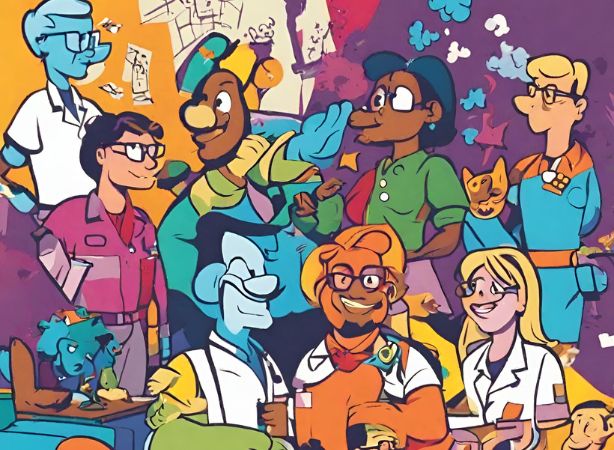
In a context where medicine and education are constantly evolving, Effective Communication is established as one of the main skills of the 21st century for medical teachers. This ability transcends the ability to transmit information; it’s about making connections, promoting understanding and fostering trusting relationships between teachers, students, patients and co-workers. The ability to communicate clearly is not only essential for effective teaching, but is also critical for clinical practice, where accuracy and clarity can significantly impact health outcomes.
The importance of effective communication in medical education lies in its ability to improve the learning process, facilitate interprofessional collaboration, and increase patient satisfaction. Teachers who have mastered the art of communication are able to inspire their students, motivate them to achieve excellence, and prepare them to interact competently and compassionately with patients. Furthermore, in an increasingly digitized healthcare environment, effective communication expands beyond face-to-face interactions to digital and distance communication as well.
In the practical application of this competency, training in communication skills becomes a crucial component of medical training. This includes not only verbal and non-verbal communication techniques, but also strategies for effective communication on digital platforms and in virtual learning environments. Professional development programs that focus on improving communication can help teachers adapt their teaching methods to meet the needs of a generation of students who have grown up in a digital world.
Therefore, cultivating effective communication skills among medical faculty is essential for advancing medical education and promoting high-quality health care. By enhancing this competency, medical educators will be better equipped to prepare their students for the challenges of modern medicine, ensuring they can communicate effectively and empathetically with patients and colleagues across a global, multicultural spectrum of healthcare practices.
Competency-Based Learning stands out as a fundamental pillar in the evolution of medical education in the 21st century. This pedagogical approach places emphasis not only on theoretical knowledge, but mainly on the development of specific skills essential for medical practice. The goal is to prepare students not just to know, but to do – equipping them with the skills necessary to act effectively and ethically in the contemporary healthcare setting.
The importance of this approach lies in its ability to align medical education with the real needs of the healthcare environment, emphasizing the practical application of knowledge and the development of clinical, communication, critical thinking, and teamwork skills. Competency-based learning moves beyond memorization of facts to encourage deep understanding and the ability to apply knowledge in varied clinical contexts.
When applying this methodology, structuring curricula and assessments based on students' real performance in defined skills is crucial. This means designing educational programs that integrate learning experiences aimed at developing specific skills, and evaluating students based on their ability to demonstrate these skills in real or simulated situations. This approach requires ongoing, formative assessment, which provides regular feedback and guidance to students in their learning process.
Therefore, adopting competency-based learning represents a significant step toward more relevant and effective medical education. By focusing on developing specific competencies, medical educators are preparing students to face the challenges of the healthcare world with confidence, competence, and a solid ethical foundation. This approach not only benefits students, but also has the potential to positively impact the quality of healthcare provided to society.
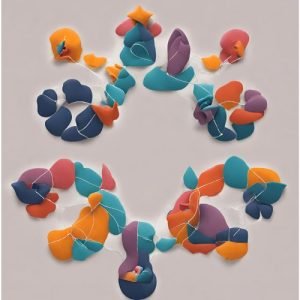
In the current scenario of medical education, Flexibility and Adaptability are crucial skills for teachers who wish to stand out and effectively prepare their students for the dynamic field of medicine. These skills go beyond the ability to adjust to new situations; they involve readiness and openness to evolve with curricular, technological and health environment changes. In a world where new scientific discoveries and technological advances are constantly transforming medical practice, educators who possess flexibility and adaptability can ensure that their students receive a relevant and up-to-date education.
The importance of these skills cannot be underestimated. Flexible and adaptable teachers are able to recognize the emerging needs of students and the health system, adjusting their teaching methods and curriculum content to better meet them. This not only enriches the learning experience for students, but also ensures that medical training remains aligned with contemporary healthcare practices and challenges.
The practical application of flexibility and adaptability in the educational context can be achieved through participation in professional development programs and workshops on educational innovation. These continuous learning opportunities allow teachers to stay up to date with the latest trends in medical education and technology, making it easier to incorporate new approaches and tools into their teaching. Additionally, participation in these programs encourages a continuous growth mindset and a willingness to experiment and implement new pedagogical strategies.
Therefore, cultivating flexibility and adaptability among medical teachers is essential to the success and relevance of medical education in the 21st century. By embracing change and actively seeking professional development opportunities, educators can ensure their students are well-prepared to navigate the complexities of the current and future healthcare environment, armed with up-to-date knowledge and robust practical skills.
In the training of future doctors, Ethics and Social Responsibility occupy a prominent place among the 21st century skills for medical teachers. The importance of this competency lies not just in teaching abstract ethical principles, but in promoting a deep commitment to the highest ethical standards and a genuine responsibility to society. This commitment is crucial in an era where public health issues, inequities in access to healthcare, and technological advances raise new ethical and social dilemmas.
The development of this competence in medical educators is vital, as they are responsible for shaping the mentality and values of future doctors. Integrating ethical discussions and social justice considerations into medical education not only prepares students to face complex moral dilemmas in their future practice, but also encourages them to consider the broader impact of their decisions on the well-being of patients and society. in all.
Applying this skill involves more than theoretical classes on medical ethics; requires creating opportunities for students to confront and reflect on ethical issues in practical contexts. This can be achieved through case studies, simulations involving ethical dilemmas, community service projects, and group discussions that encourage critical reflection on social justice and health equity. These activities help strengthen students' sense of social responsibility and develop their ability to make informed ethical decisions.
Therefore, promoting ethics and social responsibility in medical education is essential to develop doctors who are not only technically competent, but also morally committed to the well-being of their patients and society. By cultivating these competencies, medical professors play a crucial role in preparing a new generation of healthcare professionals who are ethical, empathetic, and socially responsible.
Educational Leadership stands out as one of the essential 21st century competencies for medical teachers, highlighting the importance of skills to lead and inspire positive changes in the educational environment. In an era of rapid transformation in medical education and clinical practice, educators with leadership skills are indispensable in guiding and motivating both colleagues and students to adapt and thrive. Effective leaders in the field of medical education are those able to anticipate change, promote pedagogical innovations, and cultivate a learning environment that supports ongoing professional development.
Leadership in medical education goes beyond administration and management; it encompasses the ability to inspire and foster excellence, innovation and ethics among future healthcare professionals. Leading educators play a crucial role in establishing educational visions and goals that align with the contemporary needs of students and the healthcare system. They are, therefore, key players in building educational programs that prepare students not only to face the challenges of today, but also to lead the way in the medicine of the future.
The practical application of this competence can be achieved through participation in leadership courses for educators and mentoring opportunities for new teachers. These programs offer not only the development of leadership skills, but also the chance to learn from experienced leaders in the field of medical education. Mentoring, in particular, is a valuable strategy for imparting knowledge, experiences and encouraging reflection on effective educational practices. Additionally, these programs help create a support network among educators, promoting collaboration and sharing of best practices.
Therefore, developing educational leadership skills among medical teachers is critical to driving the evolution of medical education. Inspirational leaders not only shape the future of medical education, but also play a crucial role in creating healthcare professionals who are innovative, ethical, and prepared to lead the transformation of healthcare. By investing in the development of educational leaders, medical education institutions are investing in the future of medicine.

21st century medical teachers face a rapidly changing educational and healthcare landscape, demanding an expanded role beyond the traditional transmitter of knowledge. They are challenged to act as learning facilitators, pedagogical innovators and ethical leaders, committed to training the next generation of doctors. This new paradigm reflects not only a shift in expectations regarding medical education, but also a response to the complex needs of the modern healthcare system.
By embracing and developing the core competencies discussed, such as digital literacy, critical thinking, interprofessional collaboration, effective communication, competency-based learning, flexibility and adaptability, ethics and social responsibility, and educational leadership, medical educators will be better equipped to navigate and Lead in the ever-evolving healthcare environment. These skills are crucial to ensuring that medical education remains relevant, effective and aligned with contemporary healthcare practices.
Investing in the development of these skills among medical teachers is investing in the future of medicine. Well-prepared educators can effectively inspire, guide, and shape medical students to become competent, ethical, and adaptable professionals capable of meeting the challenges and seizing the opportunities of the 21st century with confidence and proficiency.
Therefore, the continued evolution of 21st century competencies for medical teachers is not only desirable but essential to the advancement of medical education. By committing to ongoing personal and professional development, educators can significantly contribute to elevating the quality of medical education and, by extension, the quality of health care provided to society.
Share your experiences and strategies in the comments or join online communities of medical educators to exchange ideas and resources.
Your message is important to us
Important
This is an open invitation to educators, students and healthcare professionals to engage in this educational transformation. Your participation, whether sharing experiences, ideas or challenges, is crucial to shaping the future of medical education. We are at an inflection point: together, we can lead the change toward medical education that truly meets society's needs. Are you ready to be part of this evolution?
21st century competencies reflect a set of skills, knowledge and attitudes essential for individuals in all fields, including medicine. These skills go beyond mere technical-scientific knowledge and include the ability to solve complex problems, adaptability, critical and creative thinking, and an interdisciplinary approach to learning. In medicine, 21st century skills also encompass the ability to work effectively in multidisciplinary teams, effective communication with patients and colleagues, and a commitment to lifelong learning and continually improving the quality of healthcare. These skills are fundamental to face the challenges of a globalized, technologically advanced and constantly changing society.
The skills in demand in the 21st century reflect the demand for professionals capable of navigating a complex and dynamic environment. In the context of medicine, key skills include digital literacy, to effectively use information and communication technologies for the benefit of patient care; emotional intelligence, crucial for understanding and managing one's own emotions and those of others, promoting effective communication and empathy; and critical thinking and problem solving, enabling healthcare professionals to analyze complex information, make informed decisions, and resolve problems efficiently. Furthermore, leadership and management skills, which involve inspiring teams, managing resources and leading health initiatives, are becoming increasingly valued.
Reiterating, the duplicity in the question about the main skills in demand in the 21st century was answered by covering a general overview and specificities within the context of medicine, highlighting the interconnection between technical, cognitive and socio-emotional skills as essential for the training of competent professionals who are adaptable to contemporary and future needs.
The 21st century teacher needs to be equipped with a diverse range of skills to meet the demands of a constantly evolving educational environment. Firstly, digital competence is fundamental, allowing educators to use educational technologies to enrich the teaching-learning process. This includes the use of online learning platforms, collaborative tools and digital resources that facilitate student interaction and engagement. Furthermore, the ability to promote an inclusive and adaptive learning environment is essential, recognizing and valuing diversity among students and adapting teaching methods to meet their different needs and learning styles.
In addition to technical skills, interpersonal and emotional skills, such as empathy, effective communication and the ability to inspire and motivate students, are equally important. Teachers must be learning facilitators, capable of guiding students in the construction of knowledge collaboratively, encouraging critical thinking, problem solving and creativity. Competence in formative assessment, which focuses on ongoing student development rather than just measuring knowledge at specific points in time, is also crucial. In short, the 21st century teacher must be a lifelong learner, constantly seeking to update their own skills and teaching methodologies to prepare their students for a rapidly changing world.
In the 21st century, the characteristics necessary for professionals encompass a combination of knowledge, skills, attitudes and values aligned with the demands of a constantly evolving world. A fundamental characteristic is the ability to continually learn and adapt to new technologies and working methods. This implies not only constant updating in your area of expertise, but also the ability to move between different fields of knowledge, demonstrating flexibility and openness to new things.
Furthermore, collaboration and teamwork emerge as essential skills, given the growing focus on multidisciplinary projects and the globalization of work environments. The 21st century professional must be able to communicate effectively in different contexts, promoting integration and synergy between diverse work teams. The ability to solve complex problems, using critical and creative thinking, is also highlighted as an indispensable characteristic, allowing innovation and adaptation to challenging scenarios. These skills are complemented by an ethical and social commitment, reflecting the professional's responsibility towards the impacts of their actions on society and the environment.
For education in the 21st century, the proposed skills aim to prepare individuals to face the challenges of a rapidly changing world. These include advanced cognitive skills such as critical thinking, problem solving and creativity, which allow students to analyze complex information, generate innovative solutions and adapt to new situations. Digital literacy also stands out as essential, encompassing not only the ability to use information and communication technologies, but also to understand and create digital content in an ethical and responsible manner.
Socio-emotional skills, such as collaboration, effective communication, empathy and self-regulation, are fundamental to promoting productive and harmonious work environments, in addition to contributing to the development of healthy interpersonal relationships. Education for global citizenship, which encompasses respect for cultural diversity, socio-environmental awareness and engagement with global issues, prepares students to act as responsible and active citizens in a globalized society. These skills, integrated into an innovative, interdisciplinary curriculum, aim to provide a holistic education that prepares students for the challenges and opportunities of the 21st century.
Although it is challenging to highlight a single skill as the most important in the training of 21st century students, given the interdependence and complementarity between different skills, the ability to learn continuously and autonomously is often considered essential. This fundamental competence encompasses the ability to seek, evaluate and assimilate new knowledge and skills throughout life, in response to rapid technological, economic and social changes.
Autonomous learning implies intellectual curiosity, intrinsic motivation and the ability to define learning objectives, identify resources to achieve them and critically evaluate one's progress. This competence enables individuals to adapt to new professional contexts, solve complex problems and innovate in their areas of activity. Furthermore, it prepares students for an active civic life, enabling them to understand and act on social, economic and environmental issues in an informed and responsible manner.
1. Adaptability and Flexibility: The ability to adapt quickly to new situations and changes in the work environment.
2. Digital Competence: Skills to efficiently use digital and information technologies.
3. Critical Thinking and Problem Solving: The ability to critically analyze information and solve complex problems.
4. Creativity and Innovation: The ability to think creatively and develop new ideas and solutions.
5. Effective Communication: Ability to communicate ideas clearly both verbally and in writing, including digital communication.
6. Collaboration and Teamwork: Ability to work effectively as a team, valuing diversity and promoting collaboration.
7. Emotional Intelligence: The ability to understand and manage one's own emotions and those of others, promoting empathy and healthy interpersonal relationships.
8. Leadership and People Management: Capabilities related to team leadership, conflict management and employee motivation.
9. Autonomous and Continuous Learning: Commitment to continuing education and the ability to learn autonomously.
10. Global Awareness and Sustainability: Understanding of global issues and commitment to sustainable and responsible practices.
Competences for the 21st century are a set of skills, knowledge and attitudes considered essential for all individuals, aiming to prepare them for the demands of a globalized, technologically advanced and constantly changing world. These competencies are generally divided into three main categories:
1. Learning and Innovation Skills: These include critical thinking and problem solving, creativity and innovation, and communication and collaboration. These skills emphasize the importance of thinking independently and innovatively, working in a team and communicating ideas effectively.
2. Digital Skills: Cover information literacy, media literacy and ICT (Information and Communication Technologies) literacy. These skills focus on the ability to access, analyze, use and create information in various digital formats, as well as understanding the impact of digital technologies on society.
3. Life and Career Skills: These include flexibility and adaptability, initiative and self-direction, social and cultural skills, productivity and responsibility. These competencies prepare individuals to navigate complex work environments, manage their own learning and careers, and interact effectively with people from diverse cultures and social contexts.
Together, these skills equip individuals with the tools necessary to thrive in their personal, professional and civic lives in the 21st century.
The challenges of work in the 21st century are many and varied, reflecting the rapid social, technological and economic transformations that characterize this era. One of the main challenges is adapting to digitalization and automation, which are redefining required skill profiles and eliminating certain jobs while creating others. This requires workers to be flexible, willing to continually learn and able to adapt to new technologies and working methods. Furthermore, the globalization of the job market implies greater competition, requiring professionals to not only master technical knowledge, but also intercultural and communication skills to work effectively in global contexts.
Another significant challenge is work-life balance, as the boundaries between work and leisure become increasingly blurred, in part due to technology enabling remote work. This can lead to greater flexibility, but also to a potential overlap of professional demands over personal life. Furthermore, increased concern about the sustainability and social responsibility of companies places new demands on professionals, who are now encouraged to consider the environmental and social impact of their professional activities. Addressing these challenges requires not only up-to-date technical skills, but also a strong set of social skills, creativity, critical thinking, and a solid ethical perspective.
The 21st century educator is, or should be, a learning facilitator that goes beyond the transmission of knowledge, inspiring and empowering students to become autonomous and critical learners. This educator is well-versed in the use of digital technologies, not only to improve content delivery, but to promote collaboration, creativity, and critical thinking among students. The effective use of digital tools allows the educator to create a learning environment that is more engaging and adaptable to the individual needs of students.
In addition to digital competence, the 21st century educator values and practices inclusive pedagogy, recognizing and respecting students' diverse backgrounds, skills and learning styles. It is a promoter of project-based learning, critical thinking and problem solving, preparing students for real-world challenges. This educator is also a continuous learner, committed to their professional development to stay up to date with best pedagogical practices and the latest trends in their field of teaching. It encourages students to ask questions, explore, and take responsibility for their own learning, fostering an environment where mistakes are seen as an opportunity for growth.
The foundation of 21st century learning design is to prepare students for the demands of a rapidly evolving world by equipping them with the skills and competencies needed to thrive in dynamic professional, social and personal environments. This project emphasizes the importance of skills such as critical thinking, creativity, collaboration, communication and digital literacy, essential for navigating the complexity of the 21st century. Furthermore, it focuses on teaching students how to learn how to learn, encouraging curiosity, self-reflection and the ability to adapt to new situations and challenges.
Project-based learning, interdisciplinary teamwork and real-world problem solving are central elements of this educational project, promoting the practical application of knowledge and the development of relevant life skills. Education for global citizenship, sustainability and social awareness are also fundamental aspects, preparing students to contribute positively to society. Furthermore, the 21st Century Learning Project is supported by a pedagogical approach that values the personalization of teaching, the integration of digital technologies and a collaborative relationship between teachers and students, where teaching is seen as a shared process of discovery and growth .
21st century education is characterized by its holistic and interdisciplinary approach, focused not only on the transmission of knowledge, but also on the development of essential skills to navigate a rapidly changing world. This new educational era emphasizes critical thinking, creativity, collaboration, communication and digital literacy, recognizing that today's students need to be prepared to solve complex problems, adapt to new technologies and work effectively in global and multicultural environments. several. Additionally, 21st century education values personalized learning, allowing students to pursue their interests and passions while developing the skills needed for personal and professional success.
In this context, technology plays a fundamental role, serving as a powerful tool to enrich the learning experience. Classrooms are becoming increasingly digital, with the use of mobile devices, online learning platforms, augmented and virtual reality, and other emerging technologies that provide innovative opportunities for teaching and learning. However, technology is seen as a means rather than an end, with the focus remaining on promoting an education that prepares students to be critical thinkers, responsible citizens and competent professionals in the 21st century.
In the 21st century, educators need a diverse set of skills that go beyond mastering academic content. Firstly, digital competence is essential, enabling educators to effectively integrate technology into teaching and learning. This includes not only the use of digital tools and online resources, but also the ability to teach students how to use these technologies critically and responsibly. Additionally, educators must possess exceptional communication and collaboration skills, enabling them to work together with colleagues, participate in professional learning communities, and facilitate collaborative learning experiences for their students.
Another crucial skill is the ability to promote critical thinking and problem solving, encouraging students to question, analyze and explore creative solutions to complex challenges. Flexibility and adaptability are also important, as educators must be prepared to adjust to new pedagogical approaches, evolving curricula, and the diverse needs of their students. Additionally, a deep understanding of inclusive and culturally responsive pedagogical practices is vital to creating a welcoming and accessible learning environment for all students.
In the 21st century, teachers play a crucial role in preparing students to face the challenges and opportunities of an ever-changing world. Using their skills, teachers can inspire curiosity and passion for learning, encouraging students to become autonomous and critical learners. They can use innovative pedagogical strategies, such as project-based learning and gamification, to make learning more relevant, engaging, and applicable to real life. Furthermore, by integrating digital technologies into teaching, teachers can offer students access to a wide range of resources and perspectives, enriching their understanding of the world.
Teachers also play a vital role in promoting values such as empathy, ethics and global citizenship, preparing students to contribute positively to society. They can foster inclusive and respectful learning environments where diversity is valued and all voices are heard. In doing so, teachers not only educate students academically, but also play a fundamental role in building more just, inclusive and sustainable societies. The importance of teachers extends beyond the classroom, influencing the well-being and development of entire communities.
Key learning expectations for the 21st century reflect the need to prepare students with a set of skills and competencies that enable them to successfully navigate a complex and interconnected world. Students are expected to develop proficiency in critical thinking and problem solving, enabling them to approach complex challenges in innovative and effective ways. Creativity and innovation are also highly valued, encouraging students to think outside the box and develop new ideas and solutions.
Additionally, collaboration and effective communication are essential, preparing students to work in diverse team environments and to clearly communicate their ideas and solutions. Digital literacy and ICT competence are expected as students need to know how to use technology effectively and responsibly. Finally, students are expected to develop a global understanding, with awareness and respect for different cultures and perspectives, as well as a commitment to sustainability and social responsibility. These expectations aim to equip students not only for professional success, but also to be engaged and responsible citizens in a globalized world.
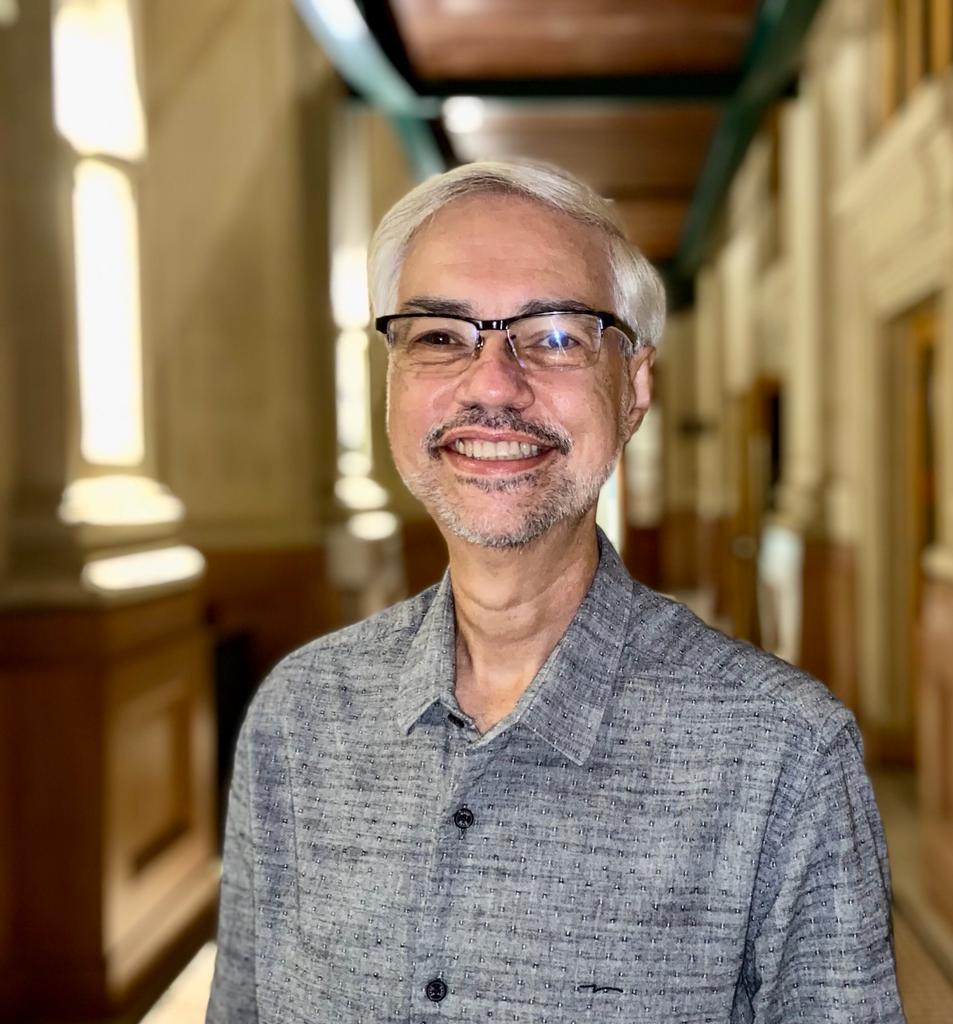
Partner at Instituto Educater, university professor in medical courses.
He specializes in education for the health professions and writes about curricula, teacher training and artificial intelligence.
